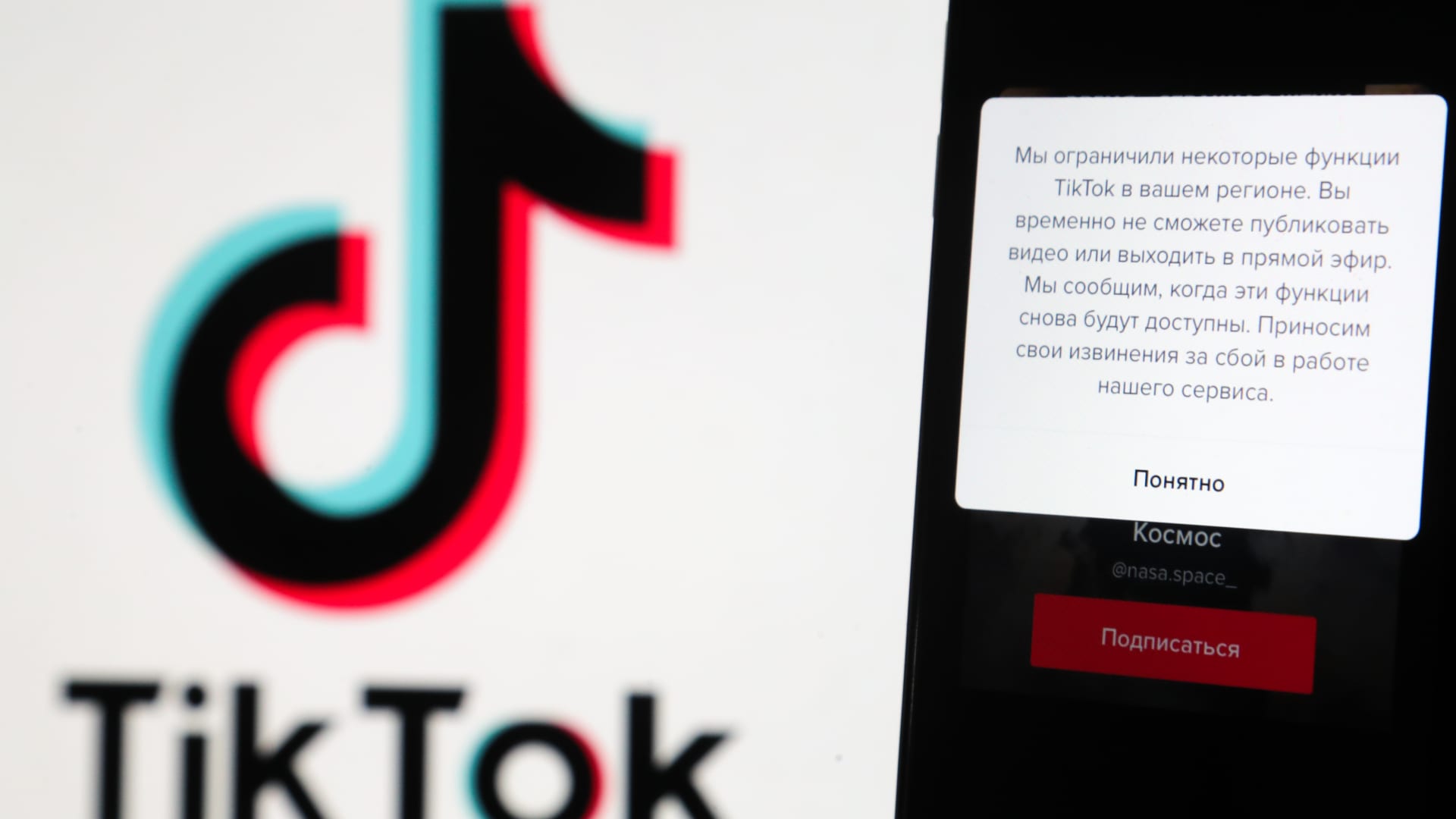LONDON — Fake TikTok accounts have spread disinformation on Russia’s war in Ukraine to millions of people, new data from the Chinese social media giant shows.
Posts on the video-sharing site targeted Ukrainian and Russian users, as well as many across Europe, with content designed to “artificially amplify pro-Russian narratives” on the war, TikTok said in a report released Wednesday.
Some accounts were fictitiously labeled as news outlets.
A separate BBC investigation published Friday identified 800 fake accounts, which it said targeted European countries with false claims that senior Ukrainian officials and their relatives bought luxury cars or villas abroad after Russia’s invasion in February 2022.
A TikTok spokesperson told CNBC that the company had already begun to investigate the accounts prior to the BBC investigation and that all fake accounts identified had since been removed.
“We constantly and relentlessly pursue those that seek to influence its community through deceptive behaviors,” they added in a statement.
The majority of the fake accounts — around 13,000 — identified by TikTok were operated from inside Russia and pushed Kremlin war propaganda in local languages to Ukraine, Russia, Germany, Italy, Turkey, Serbia, Czechia, Poland and Greece.
However, a number of the identified accounts were operated from within Ukraine and were found to be “artificially amplifying narratives aiming to raise money for the Ukrainian military.”
The combined followers of the fake accounts exceeded one million, TikTok said, though videos shared on the platform routinely reach viewers in their millions.
The latest figures add to previous reports of fake pro-Russia accounts identified by TikTok, as it steps up its self-reporting amid international pressure on social media sites to clampdown on false users and disinformation.
It comes a week after the U.K. accused Russia of conducting a years-long “campaign of malicious cyber activity” against politicians, civil servants and journalists aimed at undermining British democracy.
